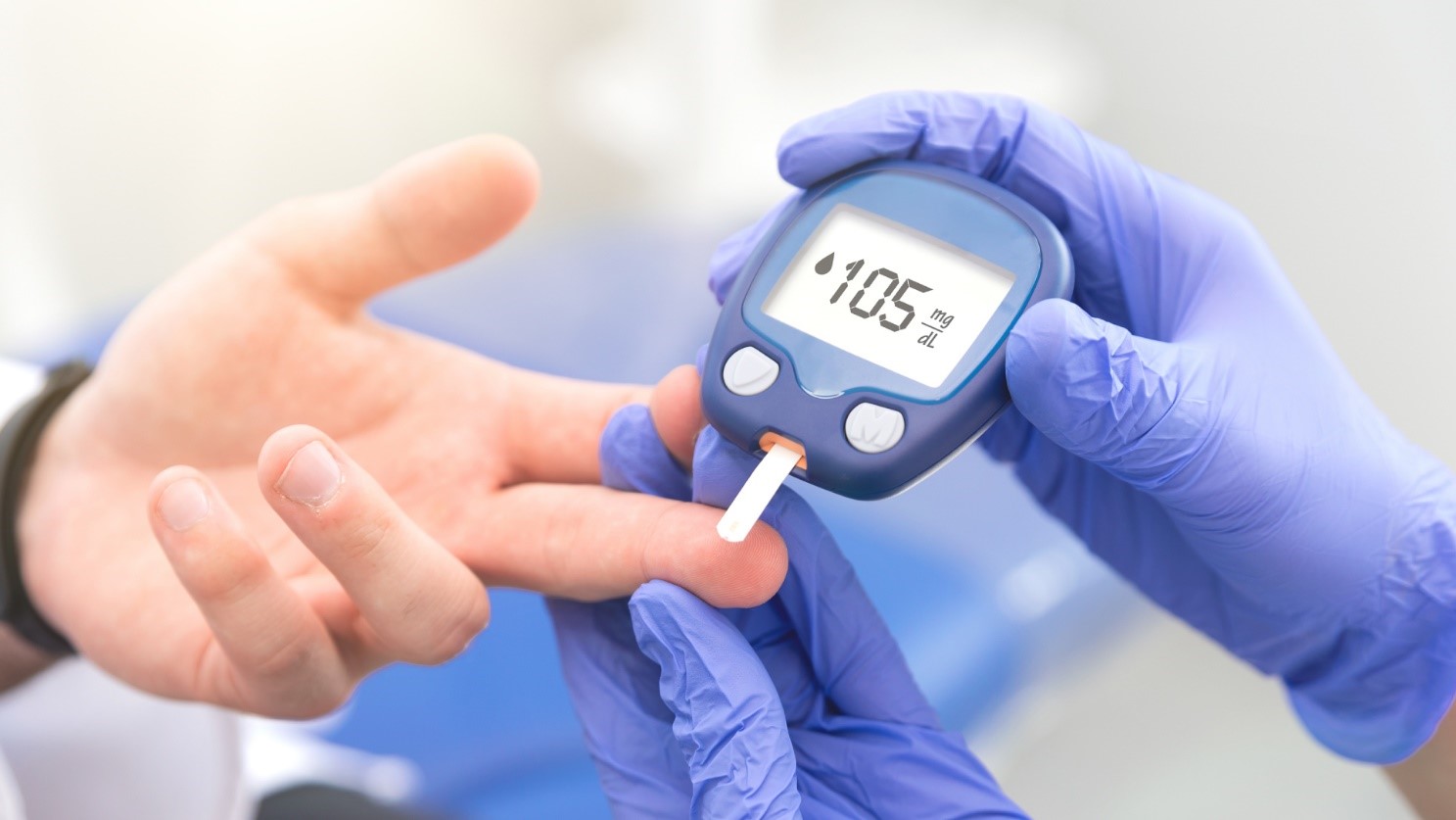Managing Gout: You Do Not Have to Bear the Pain

Gout is a type of arthritis that is caused by the build-up of uric acid in the joints, which can lead to inflammation and pain. It typically affects the joint in the big toe but can also affect other joints such as the knees, ankles, and wrists. 1
Symptoms of gout include swelling and pain in the joints, especially in the big toe as well as redness and tenderness around the affected area. Other symptoms may include fever, chills, fatigue, nausea, and vomiting. 1
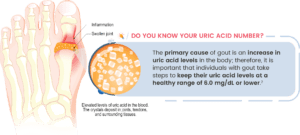
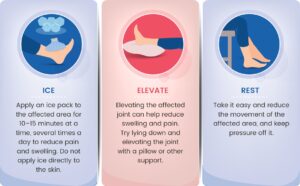
2. Gout-prevention diet 1,3,5
Make changes to your diet by avoiding purine-rich foods.Purine is a chemical found in certain foods that can increase the levels of uric acid in the body.Purine-rich foods to avoid includeorgan meats, anchovies, sardines, and certain types of seafood.
Eating a healthy diet that includes low-fat dairy products, whole grains, fruits, and vegetables can also help reduce uric acid levels. Avoid alcohol as it can increase uric acid levels and worsen gout symptoms.
Use this shopping list as a basic guide when making food selections to help lower your uric acid levels and reduce your risk of gout flares.
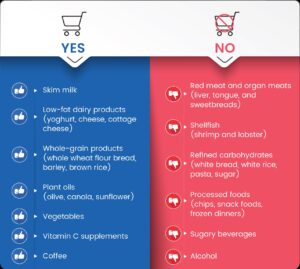
Shopping list adapted from Arthritis Foundation4
3. Drink plenty of fluids 1,3,5
Staying hydrated by drinking plenty of water can help keep uric acid levels low.
4. Maintain a healthy weight 1,3
The likelihood of having gout might increase if you are overweight. Losing weight, if needed, can help reduce uric acid levels and improve symptoms.
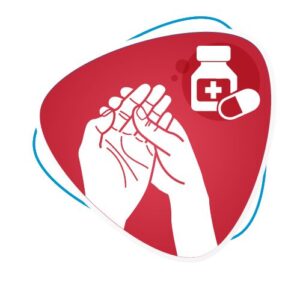
5. Take your medications 1-5
Your doctor may prescribe medication to help reduce uric acid levels and relieve pain and inflammation associated with gout. Medications for gout may include:
- Nonsteroidal anti-inflammatory drugs (NSAIDs) to reduce pain and inflammation.
- Colchicine–a medication specifically designed to treat gout, reduce inflammation, and prevent future attacks.
- Corticosteroids to control gout inflammation and pain.
If you have chronic gout, your doctor may also prescribe medication (urate-lowering therapy) to help lower your uric acid levels and prevent future attacks. These medications include allopurinol, which blocks the production of uric acid, and probenecid, which helps the body get rid of excess uric acid.
6. Manage stress 5>
Finding a good coping mechanism for stress is vital as stress can aggravate gout episodes. Try deep–breathing exercises, or meditation, or consider talking to a therapist.


References
1. National Institute of Arthritis and Musculoskeletal and Skin Diseases. Gout. 2020. Available at: https://www.niams.nih.gov/health-topics/gout. Accessed on: 10 December 2022.
2. Gout Education Society. What is Gout? 2021. Available at: https://gouteducation.org/what-is-gout/ Accessed on: 10 December 2022.
3. Agency for Care Effectiveness (ACE). Appropriate Care Guide. Gout: Achieving the Management Goal. 2019. Available at: https://www.ace-hta.gov.sg/healthcare-professionals/ace-clinical-guidances-(acgs)/details/gout-achieving-the-management-goal. Accessed on: 10 December 2022.
4. American Academy of Orthopaedic Surgeons. Gout. 2010. Available at: https://orthoinfo.aaos.org/en/diseases–conditions/gout/. Accessed on: 10 December 2022.
About Frontier Healthcare Group
Frontier Healthcare (as part of the Qualitas Primary Care Division) runs 18 GP clinics, 2 Family Medicine Clinics (Clementi and MacPherson) and has 37 affiliated GP clinics under its Frontier Primary Care Network Program. Frontier Healthcare supports national schemes such as the Community Health Assist Scheme (Pioneer, Merdeka, CHAS Green, CHAS Orange, CHAS Blue), Baby Bonus, Healthier SG, MBS@Gov etc, as well as partnerships with major Insurers, Corporates and TPA partners to bring quality and affordable healthcare closer to the community.



